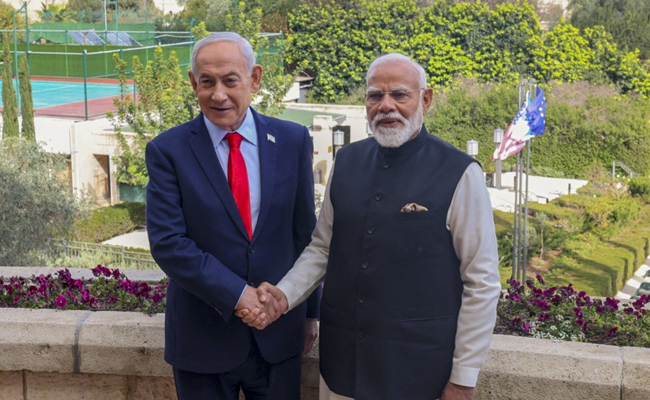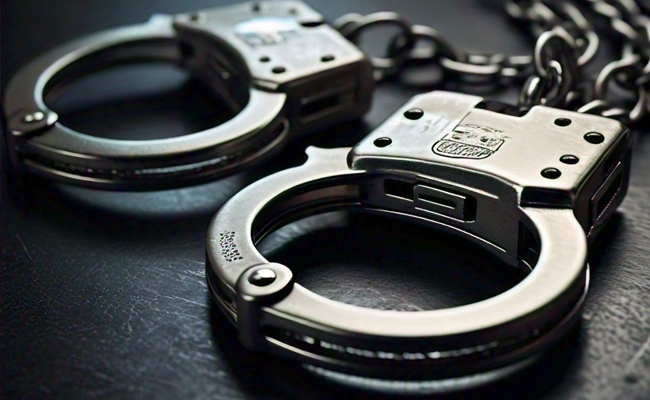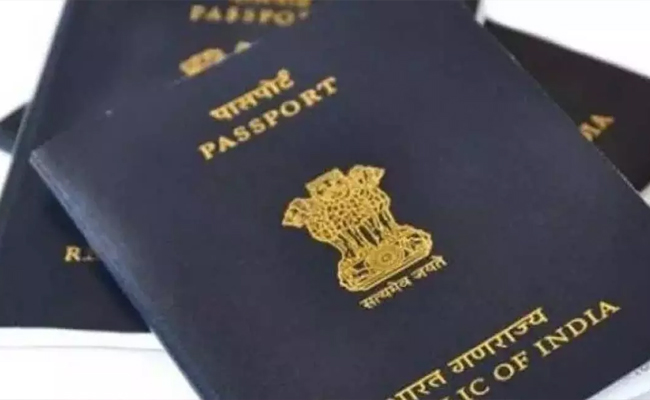New Delhi: The Kasaragod to Trivandrum train is the best-performing Vande Bharat Express with an average occupancy of 183 per cent among the 23 pairs of such trains running across the Railway network, according to official data.
The Vande Bharat Express between Trivandrum and Kasaragod in Kerala, with an average occupancy of 176 per cent is the next best-performing train, followed by the Gandhinagar-Mumbai Central Vande Bharat Express with an average occupancy of 134 per cent.
On February 15, 2019, Prime Minister Narendra Modi flagged off the first Vande Bharat Express between New Delhi and Varanasi, Uttar Pradesh which was manufactured indigenously at the Integral Coach Factory, Chennai.
So far, 46 Vande Bharat Express services have reached all rail-electrified states of the country. Encompassing a total of 24 states and Union Territories, the Vande Bharat Express fleet has been ever-growing owing to its time-saving feature, which saves an average of an hour in comparison to other trains.
With a maximum permissible speed of up to 160 kmph, it provides faster acceleration. The Vande Bharat Express is the fastest passenger train on the routes it is running on.
Also read: Bank account holder in Mangaluru duped of Rs. 44,500 under pretext of KYC updation
The trains with top occupancy include the Mumbai Central-Gandhinagar Vande Bharat Express (129 per cent), Varanasi-New Delhi Vande Bharat Express (128 per cent), New Delhi-Varanasi Vande Bharat Express (124 per cent), Dehradun-Amritsar Vande Bharat Express (105 per cent), Mumbai-Sholapur Vande Bharat Express (111 per cent), Sholapur-Mumbai Vande Bharat Express (104 per cent).
In the eastern region, the Howrah-Jalpaiguri Vande Bharat Express has an average occupancy of 108 per cent and on the return journey, it has recorded an occupancy of 103 per cent. The Patna-Ranchi Vande Bharat Express has an occupancy of 125 per cent, while on its return journey, it has an occupancy of 127 per cent.
Among the trains that need a leg up in occupancy is the Ajmer to Delhi Cantonment Vande Bharat Express (60 per cent) and the Delhi Cantonment to Ajmer train (83 per cent).
Also Read: Anand K takes charge as Dakshina Kannada ZP CEO
So far the train has made 2,140 trips, and 25,20,370 net passengers have boarded the Vande Bharat Express from April 1, 2022, to June 21, 2023.
Union Finance Minister Nirmala Sitharaman on February 1, 2022, during her budget speech announced that 400 new-generation Vande Bharat trains with better energy efficiency and passenger riding experience will be developed and manufactured.
As of July 2022, a tender has been awarded for manufacturing 102 Vande Bharat trains and another tender has been floated for 200 Vande Bharat trains.
Let the Truth be known. If you read VB and like VB, please be a VB Supporter and Help us deliver the Truth to one and all.
Jerusalem (PTI): India and Israel on Thursday elevated their "time-tested" relationship to a special strategic partnership and agreed to soon firm up a "mutually beneficial" free trade deal even as Prime Minister Narendra Modi strongly backed the Gaza peace initiative, asserting that humanity must never become a victim of conflict.
Following talks between Modi and his Israeli counterpart Benjamin Netanyahu, the two sides inked a plethora of agreements to expand cooperation in areas of trade, agriculture, energy, cyberspace and digital payment.
India and Israel also vowed to expand their already close defence partnership by working towards joint development and joint production of military hardware under the framework of the transfer of technologies.
In his media statement, Modi said India's security interest is linked to peace and stability in the Middle East, adding that New Delhi fully supports the Gaza Peace Initiative.
"India's stance is clear: humanity must never become a victim of conflict. A path to peace has been created through the Gaza Peace Plan. India has fully supported these efforts," he said.
"In the future as well, we will continue dialogue and cooperation with all countries," he said.
PM Modi landed in Israel on Wednesday on a two-day visit. It is his second visit to Israel in nine years.
In his remarks, the prime minister said India and Israel have a united view that there is no place for terrorism in the world and both sides stand shoulder-to-shoulder in countering terrorism and its supporters.
"Our relationship is founded on the strong bedrock of deep trust, shared democratic values, and human sensitivities. Our bond has stood the test of every trial of time," he said.
"Today, we have taken the historic decision to elevate our time-tested partnership to the status of a 'Special Strategic Partnership'," he said.
The prime minister also announced the establishment of an India-Israel critical and emerging technologies partnership to impart a new momentum for cooperation in areas of artificial intelligence, quantum, and critical minerals. "I am pleased that an agreement has been reached for the use of UPI in Israel," he said.
The prime minister, referring to the threat of terrorism, said India and Israel will continue to confront the menace unitedly.
"India and Israel are completely clear that there is no place for terrorism in the world. In any form, in any expression, terrorism cannot be accepted," he said.
"We have stood shoulder-to-shoulder in opposing terrorism and its supporters, and we will continue to do so," he added.
India and Israel also discussed the implementation of the India-Middle East Europe Economic Corridor (IMEC) and cooperation under the framework of I2U2 (India-Israel-UAE-USA).

_vb_60.jpeg)



